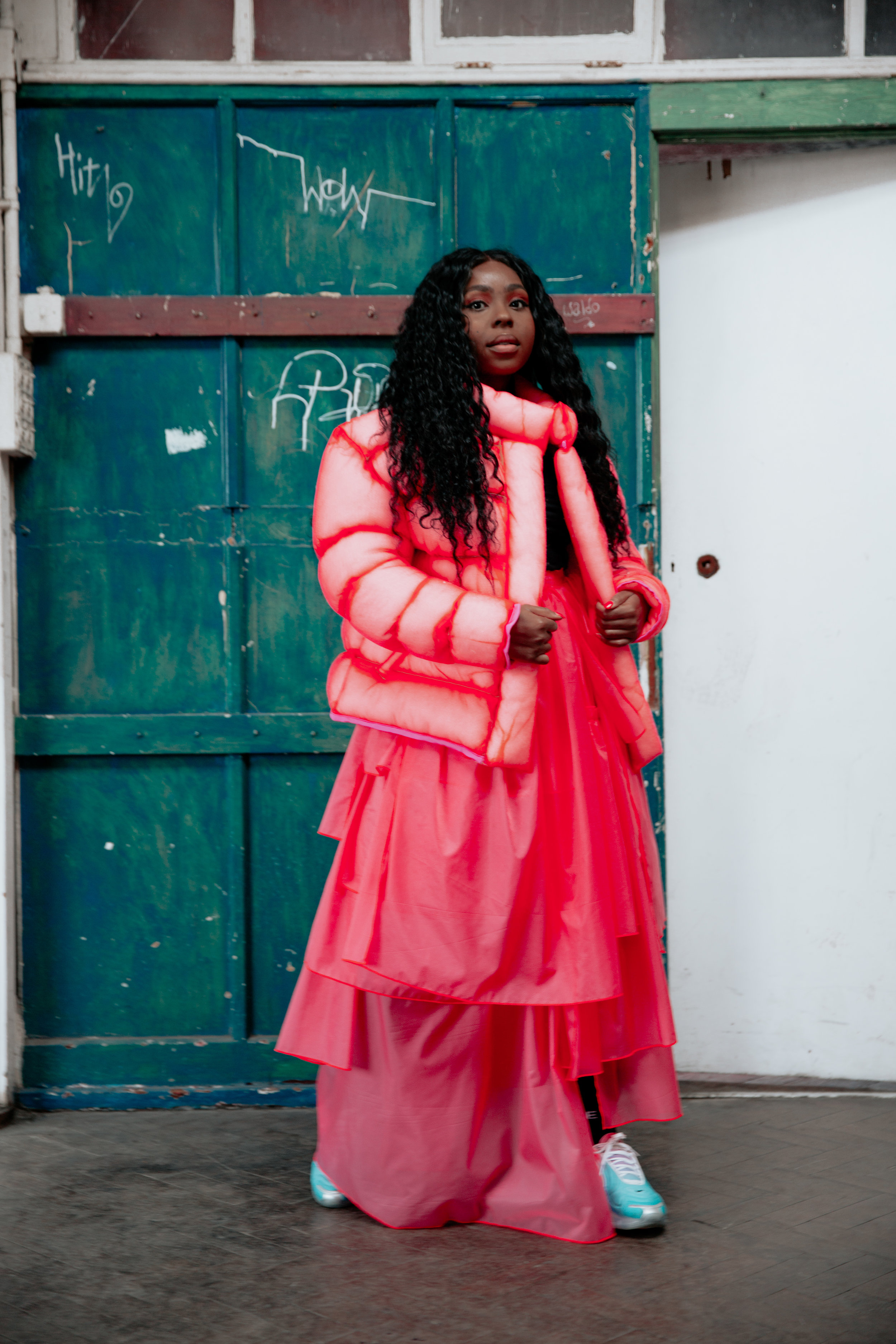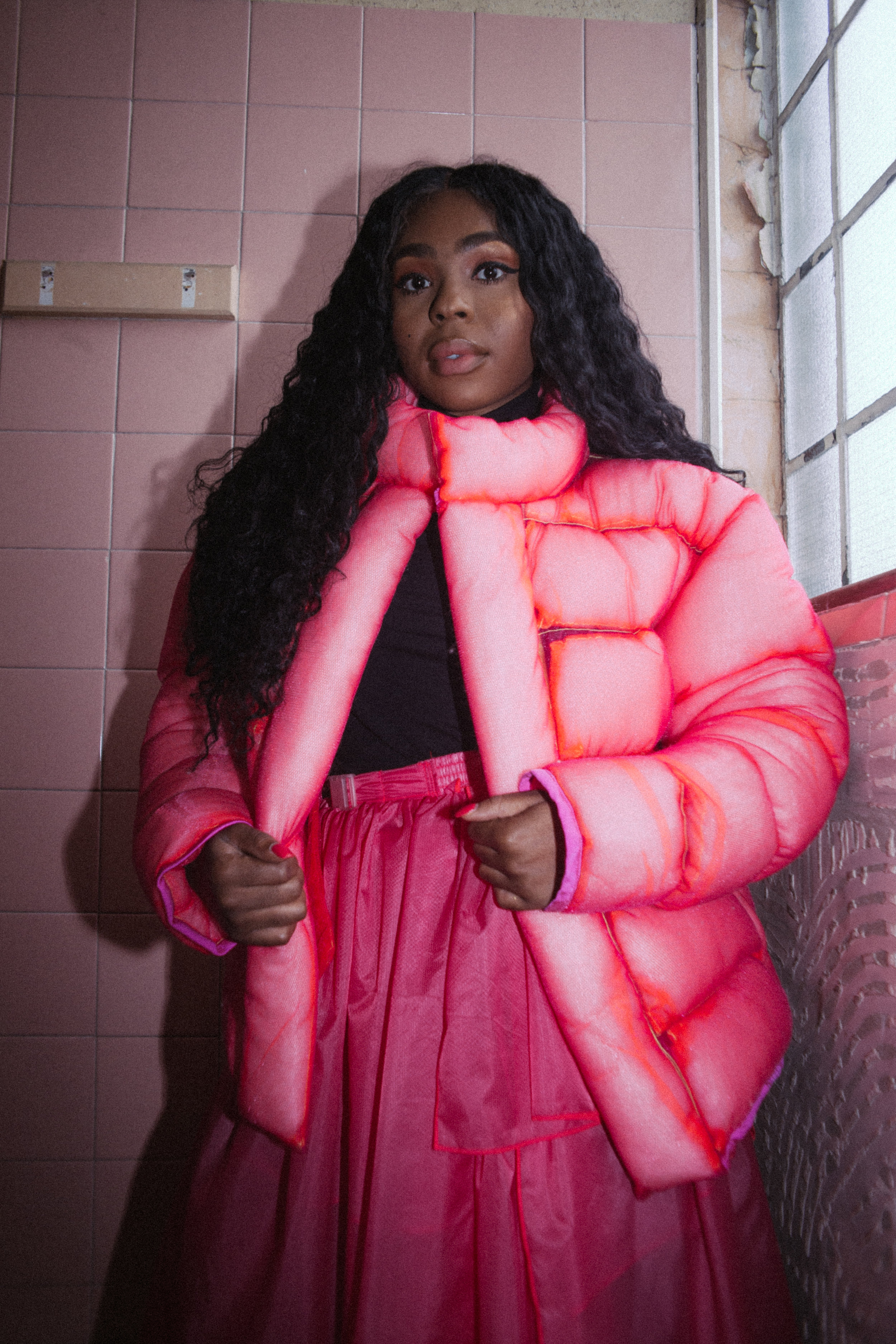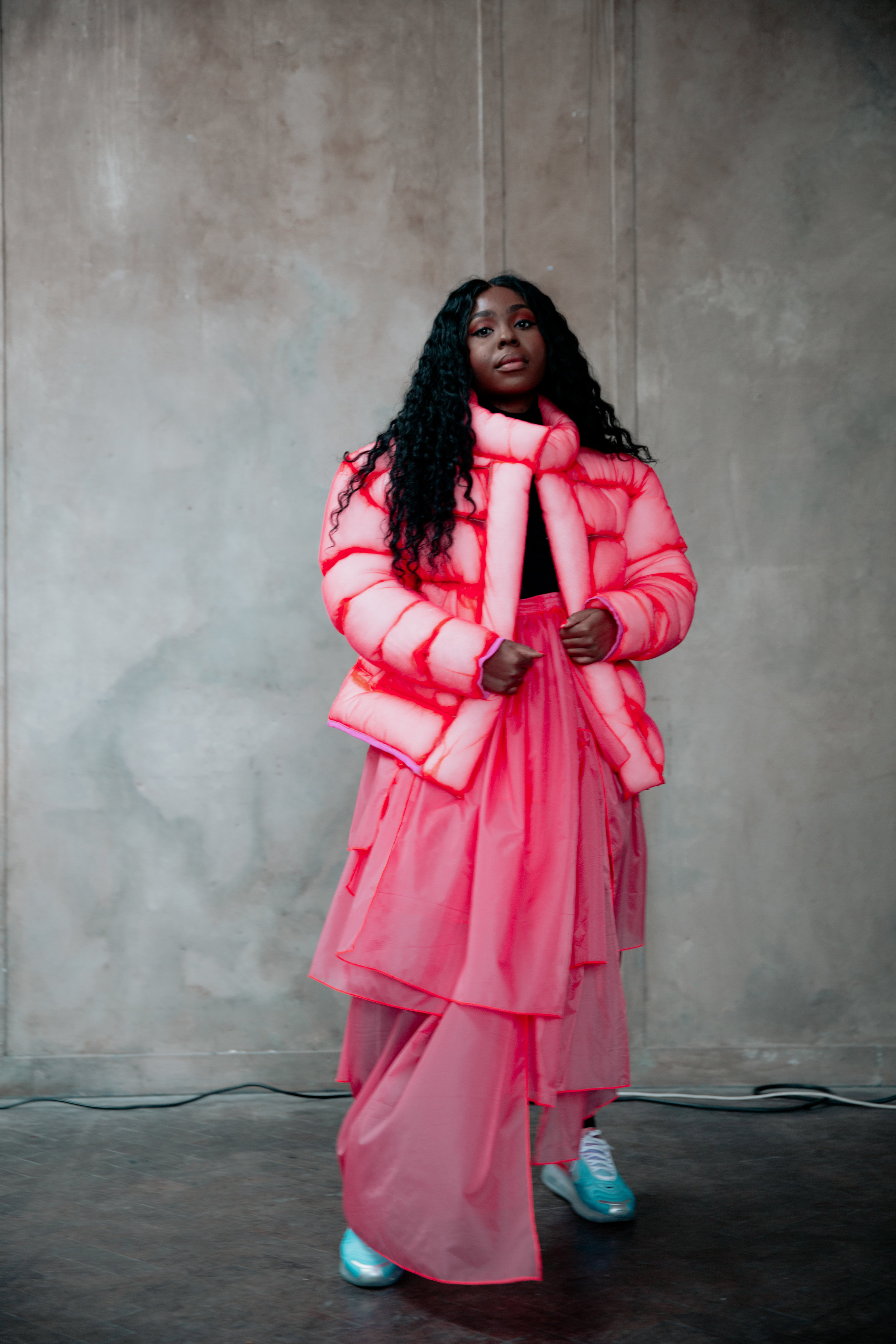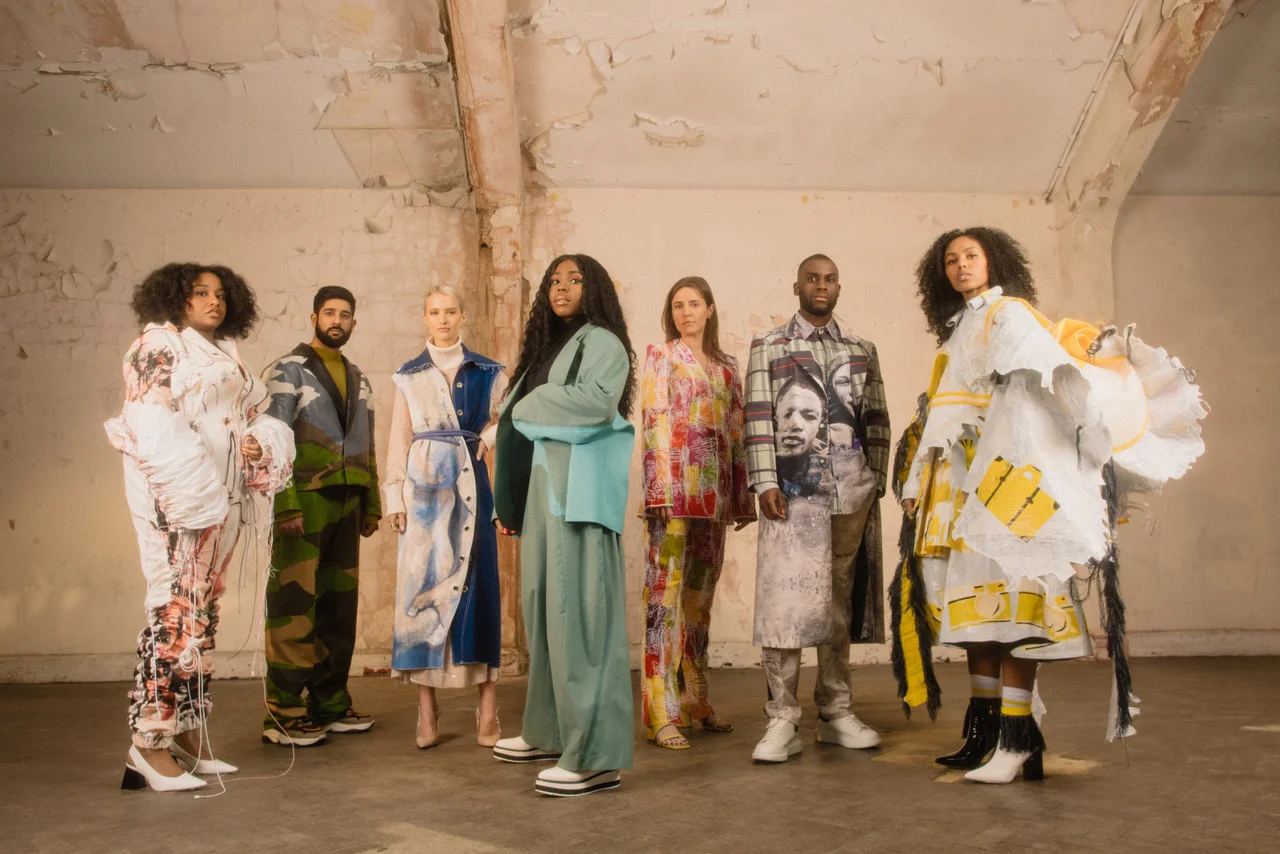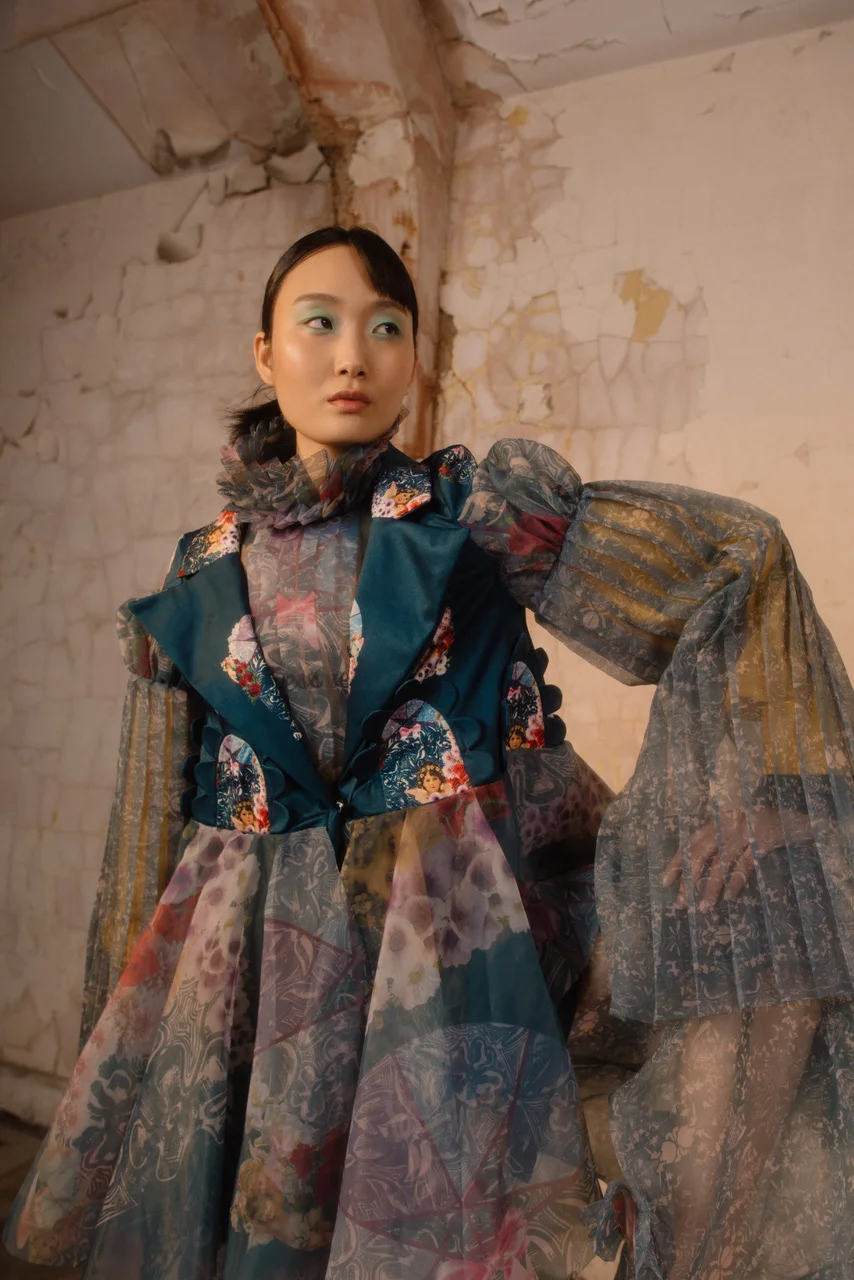This week, we meet Mercedes Benson, a multi-hyphenate creative working in the music industry who is a DJ, brand partnerships manager, social enterprise founder and influencer. Mercedes sat down with GFW Digital Editor Megan Doyle at the GFW Talent of Tomorrow shoot to discuss how she got into, and how she balances her various jobs, and why she’s passionate about supporting young BAME talent into the industry. She also shares some great advice for young people who are thinking about taking multiple different pathways — you can do it all, just maybe not at once.
Hi Mercedes, thanks for joining us on the GFW19 Talent of Tomorrow shoot today! One thing that struck me about your career is how many different paths you’ve taken. How did you get into your career as a brand partnerships manager, DJ, influencer and social enterprise founder?
Originally I was studying biomedical science with the idea to be a doctor, but while I was at university I managed to get an internship with Adidas and once I started that, I realised that I really wanted to work within the branding and entertainment space. For the past 6-7 years, aside from working behind the scenes, I’ve also been DJing and throwing events around London.
For me, it’s about finding your purpose and doing what makes you feel good. It’s important to follow your passions — my passion is music — so the fact that I can work within branding in the music industry but also DJ and throw events is really amazing.
Do you think that’s it’s important for young people to embrace the fact that a non-linear career trajectory is the future of being successful and fulfilled as a creative within these sectors?
Absolutely. I think that in this day and age, it’s really exciting because a lot of people are realising how multi faceted they are. We have so many skills but a lot of times society or university will tell us there’s one approach to life and careers.
With the rise of social media, we can explore so many different skills. I wouldn’t say you have to do it all at the same time, but we have the chance to work on particular skills or in a particular industry for a few years. We’re less afraid to switch it up and we’re not interested in doing one thing for the rest of our lives.
Photo by Emilie Risi
Photo by Olivia Ferrera-Forbes
What’s the biggest lesson you’ve learnt from working in different sectors and experimenting with different roles within the creative industry?
The biggest lesson has been not to feel disheartened when you hear “no.” There’s going to be a lot of people who don’t think your skills are up to par just yet, but they will still be watching. So even if you hear a “no” today, it doesn’t mean it’s a “no” tomorrow. You might need to knock on a few more doors, but you’ll hear a yes eventually! Don’t take no personally, and keep persevering!
Tell me about the social enterprise you founded, Socialfixt. When did you get the idea to launch the platform?
I started it about 2 years ago. Socialfixt is a social enterprise and recruitment platform to connect BAME talent with jobs within the creative industry, which is really lacking in Black and Ethnic Minority people. Only 11 percent of the industry currently caters to BAME talent behind the scenes, but a lot of these industries, mainly the consumer facing side, is diverse.
So it’s about making sure that behind the scenes is as diverse as the front. We put on events and we have a Facebook group where we share opportunities daily. Our events are held all over London where we champion entry level talent and encourage people to be empowered, upgrade their CVs, learn the tricks of the trade about how to get into the industry, and be surrounded by like minded people.
What do you think are the biggest aspects that need to change within the structure of creative industries to enable people from different backgrounds to be represented and feel welcome?
Accessibility is a big thing. A lot of people are coming from different backgrounds into an industry that traditionally only caters to people coming from a middle class background. Unpaid internships and work experience culture means that people from working class backgrounds will find it hard to get their foot into the door.
It’s about creating more opportunities where people from different backgrounds can access the industry, while making sure that senior leaders are making their teams as diverse as possible. If a CEO or HR looks around their team and realise it only represents one background, they need to take it upon themselves to change that.
Photo by Erika Astrid
There’s a lot of conversation around this at the moment and it seems like the momentum is building around making diversity a priority. Do you feel like this is an encouraging step forward? What do you think still needs to be done in the future to push this conversation forward?
Sometimes it is frustrating because diversity does seem to be a buzzword. There’s loads of panel discussion talking about the same thing but for me, it’s about opportunity and companies need to make sure that they’re being held accountable. We can have all the discussions in the world, but if you can’t say that you’ve actually hired someone who's from a different background from you, then you’re doing the whole discussion a disservice.
What advice would you give to young people wanting to start their career that you wish you knew when you were starting out?
I would say for anyone, make sure you do your research and don’t go in blindsided. It may look all glitz and glamour online, but in order to get your foot into the right door, you have to be strategic. Do your research, know the companies in your industry, get on LinkedIn and Bumble Bizz and find managers of specific companies. Use your social media presence as a way to connect with the people you want to work with.
Check out more stories from our Talent of Tomorrow 2019 campaign below!






